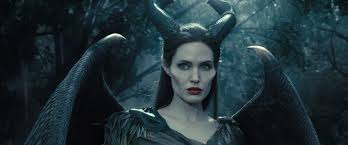“No society treats its women as well as its men.”
UN Development Programme, 1997)
There’s a new movie I’m wanting to see. It’s called Maleficent and stars Angelina Jolie.
It’s timely because it’s really about rape, which has now entered into virtually every fabric of American life, including our schools. On our higher college campuses, one out of five coeds will be raped.
Time Magazine in its recent cover issue on the subject, mentions that the University of Montana (Missoula) has averaged 80 rapes annually over the last two years. It isn’t unique: even the Ivy League schools have a high incident rate–that is, of reported rapes, twenty percent of them related to alcohol. Some experts speculate that most campus rape goes unreported.
Across the nation, the same 20% figure prevails, with 80% of rape victims below age 25, according to The National Intimate Partner and Sexual Violence Survey, done in 2010, and made public last year. Stalking, now abetted by smart technology, is even more widespread, or five times the number of rapes.
But let’s get down to bedrock: The survey estimated that 1.27 million American women were raped–or one woman every 29 seconds–and 5.1 million stalked–a fall out rate of one woman every 7 seconds.
Rape is so much a part of our national fabric that it’s found its way into a Walt Disney film in a grim version of Sleeping Beauty. In the eponymous film, Maleficent is a fairy initially enjoying unlimited aerial freedom in a forest setting (i.e, archetypal rendering of situational danger), who falls in love with Stefan, a human being, who betrays her.
Rape, in the film’s metaphorical version, is transposed into Stefan’s drugging Maleficent so that he can take her wings back to the king of humans. In this age of ambien, pervasive alcohol, and PT141 on the horizon, sounds familiar, doesn’t it?
In a cogent review, http://huff.to/1lbymvh, Hayley Krischer writes that “Maleficent is a commentary on current male and female relationships. It’s a commentary on rape culture. And much more, it’s a story that allows a woman to recover. It gives her agency. It gives her power. It allows her to reclaim the story. And this is something that can’t be ignored.”
Sadly, clipping a woman’s wings is what many men do, with rape its ultimate manifestation, taking away their ability to be fully themselves, free to pursue their dreams, able to soar above the nets of male malice, discrimination, exploitation and often betrayal. (Krischer reminds us that 70% percent of rapes are committed by someone the woman knows.)
While many gains have been made with the rise of feminism in the 1960s, the rape culture is still with us, and even more, of men who still try to clip a women’s wings through unequal pay, feminization of poverty, career barriers, sexual harassment, verbal abuse, and physical violence.
In a culture still dominated by testosterone driven men I doubt this sad scenario will ever fully vanish, but at least a film like Maleficent can give women awareness and its articulation, empowering them to keep their wings intact.
–rj


This article provides clear idea in favor of
the new users of blogging, that actually how to do blogging
and site-building.
LikeLike